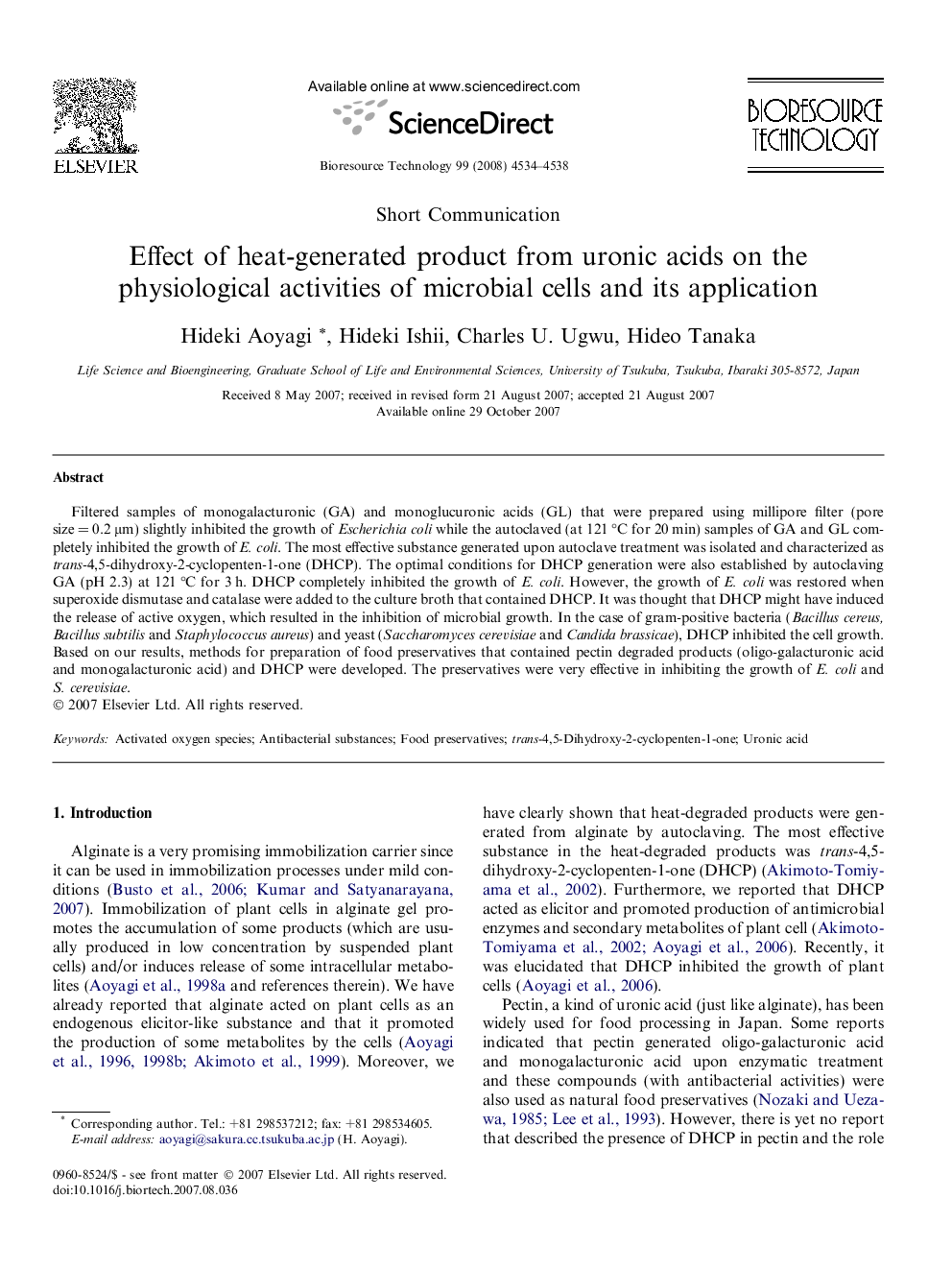| کد مقاله | کد نشریه | سال انتشار | مقاله انگلیسی | نسخه تمام متن |
|---|---|---|---|---|
| 684409 | 889020 | 2008 | 5 صفحه PDF | دانلود رایگان |

Filtered samples of monogalacturonic (GA) and monoglucuronic acids (GL) that were prepared using millipore filter (pore size = 0.2 μm) slightly inhibited the growth of Escherichia coli while the autoclaved (at 121 °C for 20 min) samples of GA and GL completely inhibited the growth of E. coli. The most effective substance generated upon autoclave treatment was isolated and characterized as trans-4,5-dihydroxy-2-cyclopenten-1-one (DHCP). The optimal conditions for DHCP generation were also established by autoclaving GA (pH 2.3) at 121 °C for 3 h. DHCP completely inhibited the growth of E. coli. However, the growth of E. coli was restored when superoxide dismutase and catalase were added to the culture broth that contained DHCP. It was thought that DHCP might have induced the release of active oxygen, which resulted in the inhibition of microbial growth. In the case of gram-positive bacteria (Bacillus cereus, Bacillus subtilis and Staphylococcus aureus) and yeast (Saccharomyces cerevisiae and Candida brassicae), DHCP inhibited the cell growth. Based on our results, methods for preparation of food preservatives that contained pectin degraded products (oligo-galacturonic acid and monogalacturonic acid) and DHCP were developed. The preservatives were very effective in inhibiting the growth of E. coli and S. cerevisiae.
Journal: Bioresource Technology - Volume 99, Issue 10, July 2008, Pages 4534–4538